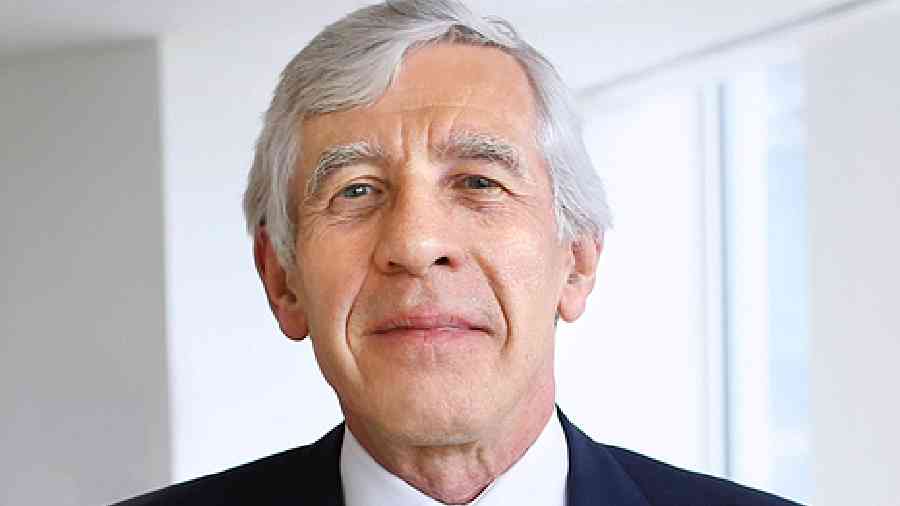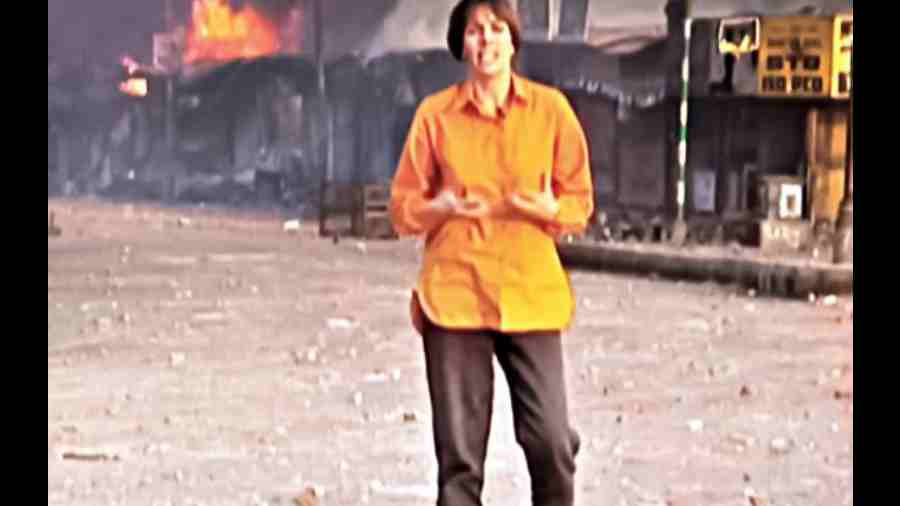Former British foreign secretary Jack Straw on Saturday defended the British high commission’s investigation of the 2002 Gujarat carnage on his watch two decades ago, saying his government was responding to representations made by British citizens of Gujarati origin.
In an interview with Karan Thapar of The Wire, Straw said he was aware of the official Indian response that the British mission’s investigation — disclosed in the BBC documentary India: The Modi Question — represented a “colonial mindset”.
“It has nothing to do about our history (British rule in India). The simple fact is that in Britain, including in my own constituency, there are hundreds of thousands of people from the Indian state of Gujarat — mainly Muslim,” Straw said.
“There were also people I knew whose families were directly affected by these inter-communal riots. They were making representations to us and that is one of the reasons why the then (British) high commissioner ordered this investigation.”
Straw added that the British high commission was always sensitive to the fact that the UK had been India’s colonial master till 1947.
“That places special responsibility on how we behave subsequently,” he said.
Asked how concerned he was by the probe report that said the violence had “all the hallmarks of ethnic cleansing”, Straw said: “I was very concerned. It was not the first time nor sadly will it be the last.”
On the report saying the VHP and its allies could not have inflicted so much damage without the climate of impunity created by the state government, and that then chief minister “Narendra Modi is directly responsible”, Straw underscored that this was an internal report.
“Obviously we didn’t publish it at that time. That was the feeling of those on the ground. This is not the only time there has been allegation of partiality by Indian police in one state or the other. It’s just a fact of life,” he said.
Straw said he had not been surprised by the report claiming that Modi had met senior police officers on February 27, 2002, and ordered them not to intervene in the rioting.
This was based on “reliable contacts” although the report added that police contacts had denied these allegations.
According to Straw, after the Godhra train burning, “Gujarat was faced with a very difficult situation because of a history of communal violence. That required effective policing and that effective policing did not take place until really quite late.”
Nor was Straw particularly surprised by the allegations of ethnic cleansing and the charges against the chief minister.
“The fact that a partisan government in one state or another was seeking to influence the way the police behaved in India was no particular surprise to me because I am familiar with recent Indian history,” he said.
Referring to the British probe, the external affairs ministry spokesperson had on Thursday said: “What inquiry? They were diplomats here. Investigation! Are they ruling the country?”
The spokesperson had added that this was the reason the Indian government saw the probe as reflecting a continuing colonial mindset.











